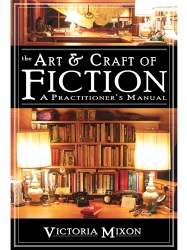We’re talking this month about instantaneous ways to improve craft—because, as Carrie Fisher says, “Instant gratification takes too long.” We’ve talked about 2 Tricks to Breaking Writer’s Block in One Day. And 3 Tricks to Ratcheting Tension in One Day.
Now let’s talk about how you can use your own life to improve your fiction. . .in one day.
-
What do you most want?
Protagonists are people who want.
And when you’re talking about characters who want things badly enough to keep readers intrigued for 300 pages, you’d better know those characters inside and out. In fact—you’d better know them as well as you know yourself.
Know what drives you through life. That’s the best drive to give your protagonists.
Most of the great writers wrote the same character over and over again under different names, in different plots, throughout their lives. Those particular characters have the motivations those particular writers understand. Deeply. Profoundly. In the magnificent, complex manner necessary to write about it.
Raymond Chandler wrote a whole series of characters exactly like Phillip Marlowe before he finally settled on the name, career, and face of Marlowe.
-
Why can’t you have it?
What the hell is wrong with you?
That’s what the hell is wrong with your protagonist.
And don’t mistake this to mean it’s something outside of you. Of course you’re strapped for cash, tied to a job, inevitably tethered to the need to make a living. But your need to survive lives inside you. And that’s an excellent need to impose upon a protagonist.
You’re also desperate for love and understanding, lonely, frustrated, trapped alone in a tormented little skull without the skills or confidence to survive what you have to do just to survive. That’s also all going on inside you. Another excellent need.
Why do you think so many books are built around protagonists torn between a fight to stay alive and the need to be loved?
Even Pride and Prejudice—with Austen’s pivotal exploration of entailment and the precarious futures of disinherited young gentlewomen—is about nothing but love and survival.
-
How are you buying into this?
Make no mistake about it: you are.
And that’s what makes you interesting. Otherwise, you’re just a blob.
That’s what makes your protagonist interesting, too. Internal conflict. How are they buying into their own nightmare? What inside them keeps them strung up on their own self-made scaffold? What makes them kick? What makes them kick over the chair?
If you’re not interested enough in human nature to sink to this level of self-examination, to bare your chest to the elements, to admit to this severe of self-sabotage (and you have it—we all do), you’re simply not tough enough to write fiction.
Emily Bronte exposed her guts in Wuthering Heights. Self-loathing doesn’t get any more fascinating than that.
-
What would force you to choose?
Because eventually you’re going to choose.
In your life. And in your fiction.
This is what readers read for: what do you choose when you can’t have it both ways? How do you make sense of a life that is, in the final hour, senseless?
Everyone reads to learn how life makes sense. You’re here to drag the ultimate nightmare—what if life doesn’t make sense?—out into the light and reveal it for what it really is: angel or devil, creation or destruction, incandescent hope or crippling despair.
Nothing less.
NEXT WEEK: 1 Secret Trick to Becoming a Genius Writer in One Day
“The freshest and
most relevant advice
you’ll find.”
—Helen Gallagher,
Seattle P-I
The Art & Craft of Story


